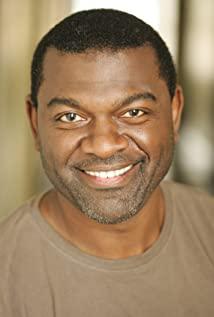The uncomplicated movie impressed me deeply. I have read the introduction before watching the movie and know that this is not a warm film, nor is it a very warm story. On the contrary, the first half of the whole movie hints at a tragic ending, but the scene where Maria’s companion is guilty is still shocked, shocked and cruel to those people. After reading it, I also know that this is almost an inevitable result. Those drug dealers are completely inhumane under the drive of huge profits. If the movie only talks about the death of Maria's companion because of the rupture of the poison bag, this movie can only be regarded as a tragedy at best. With the next scene, we can see the real cruelty.
Another factor that made me unforgettable in this movie was the director's shooting technique, or the way of telling the story. In fact, the storytelling method of this movie is very simple: straightforward narration. There is no David Lynch’s dream or the montage we often say. The whole movie is like a drug trafficking documentary. It simply tells how a young girl in a poverty-stricken area was humiliated, how to meet a drug dealer, and how to guide and help the drug dealer. Swallow drugs.... The color tone is ordinary, and it can even be fast. There is no gray tones or dark colors that are common in tragic dramas, and even a little deliberately deceiving the audience. In my opinion, the most tragic part is only lightly taken, and there is no difference in technique or technique from other parts of the movie. In the end, Maria and her other companion fled to find the sister of the dead companion. She was shocked and returned the drugs to the drug dealer to ensure the safety of her family.
This almost indifferent shooting technique immediately reminded me of another movie "Elephant", which talked about a school shooting incident made by two high school students on an ordinary day. "Elephant" tells the most appalling tragedy in the calmest way. In the movie, the director tried his best to portray the lives of ordinary students in that school. The more normal and ordinary and plain the life is, the more it reflects the sudden and unreasonable shooting incident. The more plain the filming method of this movie, the more people feel the cruelty of the cruel life of the incident. The willingness of those girls to take such risks also reflects the psychological and even spiritual impact of poverty on people.
When I watched the movie, I almost simultaneously thought of Chen Danyan's novella "Slow Boat to China", which I saw in Harvest a few years ago. The novel talks about the price paid by a Shanghainese to go abroad and the life after going abroad in the 1980s. The eldest daughter of this family has dreamed of going abroad since she was a child. She didn't want to learn anything except English. When she really went abroad, she couldn't face the reality that the United States was not gold everywhere, and finally became insane. Her father went abroad to take care of her. In order to stay in the United States, he deliberately hit the car and took his young daughter to the United States to study. When I was reading this novel, I felt that the living conditions of Shanghainese were so good that they wanted to go abroad so incredible. Now I understand that in fact, all kinds of people yearn for a better life.
In fact, for most ordinary people, there are not so many ideals and ambitions, and there is no romance and greatness of revolutionaries or scientists, writers and poets. Most people work hard for the house, car, or even more often to get a full meal. During my internship in a shipyard, I saw some workers doing electric welding in small cabins for not too much wages. They endured the heat and the chemical gases generated by the burning of the welding wire for several hours. Some workers burn deformed steel plates with air guns all day long. These people are the people at the bottom. They do the heaviest and most hopeless work. The happiest time is when a few people go out to drink together after paying monthly wages. Many of them will still do the same job ten or twenty years later, as long as they don't break down. This is the life of some people. Apart from studying for a few more years, I am no different from these people. They are all living at the bottom of society.
Because I have seen and experienced too much poverty and bitterness, I generally dismiss those so-called tragic dramas. The fake ones will make people sick, even if they are really real, what can I do? Lu Xun taught us to "face the bleak life." Sometimes I want to face it, what can I do? Not all people are revolutionaries. And even if we write the most real life, what can we do? How many souls of the Jews could be saved by Paul Celan's "Death Fugue"? I sometimes think that maybe I am too weak to face reality. Maybe we shouldn't ask too much, maybe we just need to do what can be done, maybe we just write the truth. Maybe we should give up all the rhetoric, give up all the techniques, first write about the most ordinary life, the most ordinary people.
View more about Maria Full of Grace reviews











